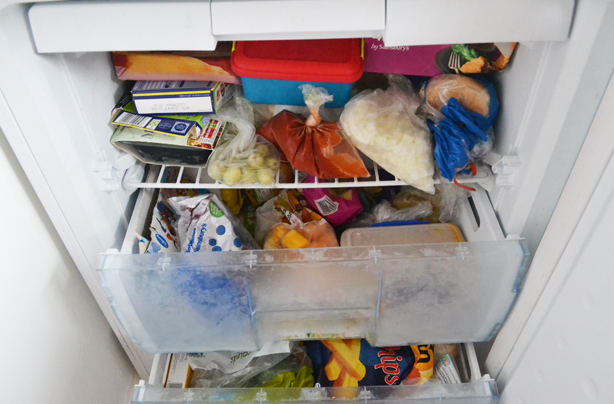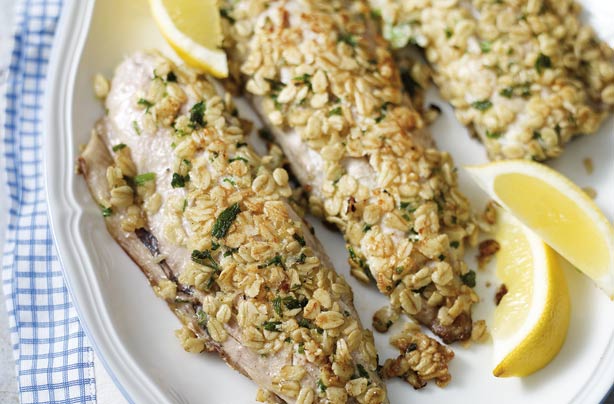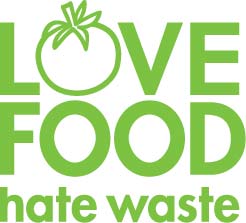How to freeze food: Our money-saving guide to using your freezer
A freezer can be a great tool in saving money on your food shop - you just need to know how - we're here to help you do exactly that!


Over 92% of households own a freezer but do we really know how to make the most of them? According to the government’s Waste and Resources Action Programme Brits throw away a staggering 7 million tonnes of food and drink every year – the bulk of which could have been eaten!
Wasting this food costs an average household (family of four) around £700 a year. A freezer can be a great tool in saving money on your food shop - you just need to know how to use it properly and with this guide we're here to help you do exactly that!
From poultry to bread, cake to vegetables, this simple freezer guide will show you exactly how to use your freezer and make the most of the space you have. We're going to turn you into a freezer expert so you can save money, time and energy on your cooking and shopping. Once you've been bit by the freezer bug, you'll never stop using your freezer to your advantage.
Reasons to freeze
They're plenty of reasons why it's a good idea to freeze your food and why using your freezer more can be really beneficial to you. Here are our top reasons why freezing is best!
Save money
A freezer is the key to saving money on your food shop. Keep a look out for cheap or reduced foods and stick them in the freezer for when you need them - this is particularly good for meat.
Save time
You can batch cook food and freeze in portions so when you're short on time, you have healthy homemade meals that can be ready in minutes. Because believe it or not, frozen foods are just as healthy as fresh meals, when done right.
Less waste
Using your freezer smartly should result in far less food waste. If your fresh food is nearing it's Use By Date, you can freeze it to prolong the time you have to use it. You can also stretch leftovers from your meals by freezing them.
Parenting advice, hot topics, best buys and family finance tips delivered straight to your inbox.
Things you can freeze
What you can and cannot freeze can often get rather confusing. Pretty much everything can be frozen, you just need to know how.
According to the FSA (Food Standards Agency) freezing food acts as a 'pause button' which means you can freeze just about anything. It's safe to freeze food up until the use-by date which includes meats and meals cooked from previously cooked and frozen meat.
Once you defrost a meal or item from the freezer it needs to be used within 24 hours. It's also best to defrost food slowly and safely, preferably overnight in the fridge - because the warmer the temperature, the more active bacteria become. Read on for more detail on individual items e.g. how to defrost red meat vs how to defrost vegetables.
Red meat
- How to freeze: Red meat can be frozen - uncooked and cooked - up until its expiry date. The same piece of red meat can be frozen twice, once before cooking and once after cooking.
- How to defrost: Defrost your meat in the fridge or on a covered plate on the kitchen side. Leave it overnight or during the day, making sure its out of heat or the sunlight, so it doesn't warm. You can also defrost meat in the mircowave on the defrost setting, just be careful if does not begin to cook.
- How to store: Take your meat out of its original packaging and store separate into portions in airtight freezer bags - this makes defrosting easier and saves space in the freezer. Make sure each bag is labelled.
- How long will it last:
- Raw red meat - up to 12 months
- Large joints - up to 6 months
- Small portions - 1-3 months
- Cooked - up to 2 months
Poultry
- How to freeze: Chicken, turkey and all other birds can be frozen uncooked and cooked. Poultry can be frozen as part of a meal like a curry or turkey Bolognese.
- How to defrost: Poultry can be defrosted in the fridge overnight or throughout the day or can be defrosted in a cool environment on a plate or bowl covered in cling film or kitchen roll. You can defrost chicken in the microwave using the defrost setting - just make sure it doesn't begin to cook/turn white.
- How to store: Breasts, thighs and wings of the bird are best stored in individual portions in freezer bags or wrapped in foil and stored altogether in a Tupperware box. You can freeze a whole bird or you can joint it and freeze in pieces.
- How long will it last:
- Whole bird - up to 9 months
- Small portions - 1-3 months
- Cooked - 2-6 months
Fish

- How to freeze: It's best to freeze fish from fresh; the fresher, the better so freeze on the day of purchase. Make sure you double check with your fishmonger to see if the fish has already been frozen, if it has been previously frozen it can't be frozen again. Cooked fish can be frozen but make sure it's piping hot when re-heating.
- How to defrost: Fish is best defrosted in the fridge to keep its freshness. Defrost overnight on a covered plate.
- How to store: Store fish in individual portions in airtight freezer bags or wrapped in cling film and then stored in a Tupperware box altogether. Remember that fish can be rather smelly if not wrapped up properly so make sure you wrap it thoroughly.
- How long will it last:
- White fish - up to 3 months
- Oily fish (like salmon) - up to 2 months
- Smoked fish - up to 2 months
- Shellfish - up to 1 month
Fruit and vegetables
- How to freeze: If you want to freeze raw vegetables, its best to blanch them first. This is done by dropping your veg in boiling water for about 5 mins and then removing, draining and cooling in cold water. Fruit is best frozen when it is fully ripe.
- How to defrost: Some smaller fruits and veggies don't have to be defrosted and can be added straight to boiling water or a cake mix for example. You can defrost veggies in the microwave or you can leave covered in the fridge or on the kitchen side.
- How to store: Leftover veggies can be stored in an airtight bag. Fruit can be frozen in bulk in a Tupperware box or airtight freezer bag.
- How long will it last:
- Blanched veggies - 8-12 months
- Raw veggies - 2-3 weeks
- Commercially frozen fruit and veg - up to 12 months
- Fresh fruit - up to 3 months
Carbs (pasta, rice etc.)
- How to freeze: Cook pasta or rice before freezing. Freezing carbs is a great way of using up any leftovers from dinner.
- How to defrost: Pasta and rice can be defrosted in the fridge overnight or during the day ready for dinner in the evening. Make sure it is piping hot before serving. Carbs are best reheated in the oven or microwave - don't re-boil in water.
- How to store: Carbs are best stored in Tupperware boxes and portioned with labels so you know exactly how many people each box will feed.
- How long will it last:
- Casseroles and lasagnes - up to 4 months
- Chilli con carne - up to 6 months
- All other cooked carbs - up to 3 months
Baked goods (bread, cake etc.)
- How to freeze: Baked goods such as cakes or bread are best divided into individual portions - bread should be sliced and bread dough separated into batches. This applies to cakes, pastries and cupcakes too.
- How to defrost: Most baked goods are best defrosted overnight at room temperature, left in a cool place in the kitchen. Frozen bread can be toasted straight from the freezer and dough can be placed straight in the oven.
- How to store: Freeze in Tupperware boxes, airtight freezer bags or on foil-lined baking trays. Large cakes are best double wrapped in cling film
- How long will it last:
- Fresh bread - up to 4 months
- Bread dough - up to 1 month
- Cake mix - up to 2 months
- Baked cake - up to 4 months
- Biscuit mix or cookie dough - up to 4 months
- Pastries - up to 3 months
Leftovers
- How to freeze: Ready-made pies, casseroles or chilli dishes etc can be frozen straight after being cooked and cooled.
- How to defrost: Most leftovers are best defrosted in the fridge overnight to keep them fresh and flavoursome and so they don't become warm or defrost too quickly. You can also use the microwave to defrost and warm up your leftovers too.
- How to store: It's best to store your leftover dishes in labelled Tupperware boxes noting exactly what the dish is and how many portions are left. Any liquids, like leftover gravy or sauces, can be stored in ice cube trays and soups and larger broth-based dishes are best stored in thick freezer bags or plastic bottles.
- How long will it last:
- Large dishes (like casserole) - up to 3 months
- Small portions of leftovers - up to 3 months
- Soups and sauces - 4-6 months
How to store food and leftovers in the freezer
Storing your food in the right way can help it stay fresher for longer. In the UK we throw away £270 worth of good food and drink just because it's 'not used in time'. The freezer is one of the best ways to stop that happening and make the most of the food we buy.
A third of us find food in the freezer we'd forgotten about or can't identify, called 'Unidentified Frozen Objects'. We keep £860m worth of food in our freezers, but doubts about freezing a wider variety of foods, and a belief that freezing is only for long-term storage, means that we are taking the freezer for granted.

We caught up with Love Food Hate Waste's Emma Marsh to find out what her top tips are when it comes to storing your food in the freezer and how not to waste food.
- Freezing fresh foods and home-cooked meals is a great way to save food for later, sealing in the goodness until you are ready to eat it - freeze in portions or 'meals' so you can just get what you need for each person. If freezing leftovers, cool the food before you put it in the freezer and ideally store within 2 hours.
- Almost any food (including hard cheese, milk, cream, veg, mashed potato, bread, portions of meat or fish, homemade meals and cakes and more) can be frozen. Soft cheese is the only thing we've found which doesn't freeze well!
- If you defrost raw meat and then cook it thoroughly, you can freeze it again. Just take care to defrost thoroughly and re-heat until piping hot
- It is safe to defrost food at room temperature, provided you intend to eat it as soon as it's thawed. Or defrost in the fridge overnight and plan to eat within 2 days
- If you buy something raw and then freeze it at home, then at a later date thaw and cook it, the cooked meal can be re-frozen. Likewise if you buy something frozen, then thaw and cook it, it can then be re-frozen for another time.
- Labelling and dating foods before you put them in the freezer will help avoid ‘UFOs' in the future - a simple market pen will work well (keep it next to the freezer so you don't forget). If the freezer is well organised, you can see exactly what you have. Try sorting through the freezer and putting similar foods together for example, bread and bakery products on one shelf, frozen vegetables or pre-prepared meals on another etc
- Dairy and fat based sauces are less suitable than tomato based sauces for freezing as they are emulsions which can separate and appear curdled, however stirring is often a successful way to reconstitute / recombine the ingredients if they do separate
- Try planning meals based on what's in the freezer to make savings on the weekly shopping bill, and make room for foods that might be on offer. Ideally keep a list of what's in the freezer so you never forget and the family always know what tasty meals are available at the last minute. No more rummaging through the freezer to see what you've got!
- For the most economic use, the freezer should be kept about 3/4 full. Rotate the stocks so that the frozen foods used in your meal plan are replaced by foods you've bought or home-cooked dishes you've made. To reduce electricity consumption, place the freezer in as cool a location as possible, keep the condenser coil clean and well-ventilated and ensure that the freezer doesn't ice up
- Look out for the snowflake logo - this indicates that the food you're buying is suitable for freezing
Your top freezer and leftovers tips

We asked you to send in your top tips for making the most out of your freezer. From storage secrets to space savers, you sent in hundreds of amazing tips and here are some of our favourites...
- 'When you open something from the freezer, use a freezer label to note the date you opened it, so you know exactly how long it can stay open for before it needs to be thrown out. You could even use red pen to indicate those with a short life span and place these products in the same drawer.' - Rachel Simmons
- 'The best tip I know is to take bulky items like mince completely out of their packaging before freezing. Square plastic packaging can take up so much room - if you take it out and pop it in a freezer bag you can save room. This method allows you to purchase more meat when reduced with massive potential savings.' - Sarah Forrester
- 'Freeze cooked meals in portion-sized containers so you can defrost just what you need rather than whole lot.' - Alison E @fudgecake78. Read more of your top freezer tips here!

Jessica Dady is Food Editor at GoodtoKnow and has over 12 years of experience as a digital editor, specialising in all things food, recipes, and SEO. From the must-buy seasonal food hampers and advent calendars for Christmas to the family-friendly air fryers that’ll make dinner time a breeze, Jessica loves trying and testing various food products to find the best of the best for the busy parents among us. Over the years of working with GoodtoKnow, Jessica has had the privilege of working alongside Future’s Test Kitchen to create exclusive videos - as well as writing, testing, and shooting her own recipes. When she’s not embracing the great outdoors with her family at the weekends, Jessica enjoys baking up a storm in the kitchen with her favourite bakes being chocolate chip cookies, cupcakes, and a tray of gooey chocolate brownies.